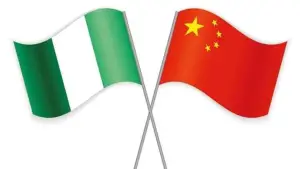The recently concluded 2025 Africa Soft Power Summit brought together influential thought leaders, disruptors, investors, and policymakers from across the continent for a dynamic two-day event held in Nairobi, Kenya on May 22-23. Under the theme "Africa's Growth Engine: How Policy and Infrastructure Can Advance Emerging Financial Technologies for Continental Leadership," the summit explored critical frameworks shaping Africa's future.
The gathering featured two major conferences: The Remarkable African Women's Leadership Conference and The Creative & Innovative Industries Conference, with distinguished speakers including Dr. Nkiru Balonwu, Founder and Convener of Africa Soft Power; Hon. CJ Martha Koome, Chief Justice of Kenya; Philip Ikeazor, Director General of Financial System Stability at the Central Bank of Nigeria; and numerous other influential voices from across the continent.
Key Takeaways from the Summit
1. Inclusion as Economic Infrastructure
The summit emphasized that inclusion must transcend being merely a buzzword or PR strategy. Dr. Nkiru Balonwu highlighted that "When you realise that inclusion is an investment in your own future, the game changes." Speakers advocated for Diversity, Equity and Inclusion (DEI) to be treated as strategic investments rather than trends or charity initiatives.
2. Infrastructure Must Match Digital Finance Growth
While digital payments have accelerated financial inclusion significantly, particularly in Nigeria where transactions now reach quadrillions, regulatory leaders stressed the urgent need for both soft and hard infrastructure to scale accordingly. Philip Ikeazor from the CBN noted, "We've made real progress on financial inclusion, up to 74% with plans to reach 95%, but to achieve that goal, infrastructure must catch up."
3. Political Will: The Missing Link in Cross-Border Payments
Despite innovations like the Pan-African Payment and Settlement System (PAPSS) by Afreximbank, Africa's fragmented currencies and rigid exchange controls continue to hinder trade. The summit identified political will as crucial for advancing unified systems. "When the Europeans wanted a common market, they did it. So really, it's about political will," remarked Philip Ikeazor.
4. Creative Industries Need Stronger Business Infrastructure
At the "Producing for Profit" panel, creative economy leaders emphasized that commercial success in film and content requires robust business infrastructure. "Strong business cases require data, distribution, and de-risking," said Kola Aina of Ventures Platform. Filmmaker Judy Kibinge advocated for emotionally resonant, export-ready narratives rather than trauma-centered African stories. Panelists also called for stronger policies to combat piracy.
5. Local Capital Control is Essential
Edwin Macharia of Axum.Earth delivered a sharp critique of Africa's investment landscape, pointing to an overreliance on foreign capital with too few local decision-makers who understand the continent's nuances. "Most of the people allocating capital to African startups over the last decade weren't from here. They didn't understand the context, and that's why they missed the opportunity," he stated, calling for a new wave of economic nationalism.
6. Interoperability: Key to Pan-African Fintech Success
Delegates highlighted how siloed platforms—banks, telcos, and fintechs not communicating with each other—weaken Africa's digital ecosystem. Ngover Ihyembe-Nwankwo of NIBSS emphasized that interoperability is non-negotiable for unlocking true digital scale across the continent.
7. Inclusive Innovation for Marginalized Women
The summit highlighted that rural and underserved women are often excluded from the design of financial, digital, and policy solutions. Speakers called for a shift from surface-level interventions to co-created solutions rooted in lived realities. "It's not just about giving loans or grants. It's about listening. It's about co-creating solutions with women who understand the problem firsthand," noted one delegate.
8. The Power of African Narratives
Despite pioneering innovations like instant payments and digital ID, Africa remains overlooked in global tech discourse. Delegates emphasized the importance of Africa intentionally amplifying its own success stories to influence perception and policy. "If we don't tell our story, others will, and we'll be fighting to reclaim it," remarked one participant.
9. Open-Source AI as an Opportunity
Speakers identified a key opportunity for Africa in building and customizing open-source AI models instead of relying solely on Western-built, closed systems. Tools like Llama can be adapted to create sovereign models trained on African languages, customs, and realities without surrendering valuable local data to foreign tech giants. "We can take these models, shrink them, localize them, and use them to solve our own problems," urged one panelist.
10. Addressing Funding Bias for Women Entrepreneurs
The summit highlighted that while women drive much of Africa's informal and small business economy, they remain drastically underfunded. Panelists stressed the need for more female capital allocators who understand the context and lived experience of African women entrepreneurs. "We don't just need gender-lens investing. We need gender-informed investors. Empowering women-led businesses isn't just good optics, it's good economics," emphasized one speaker.
Building Africa's Own Table
The 2025 Africa Soft Power Summit made it clear that Africa is no longer asking for a seat at the global table—it is building its own. From financial infrastructure and policy reform to gender inclusion and AI strategy, the summit challenged institutions to move from talk to transformation.
For Africa to lead globally, the summit concluded, the continent must align its narratives, systems, and capital with its unique realities and strengths. This alignment represents the path forward for true continental leadership in the global economy.













